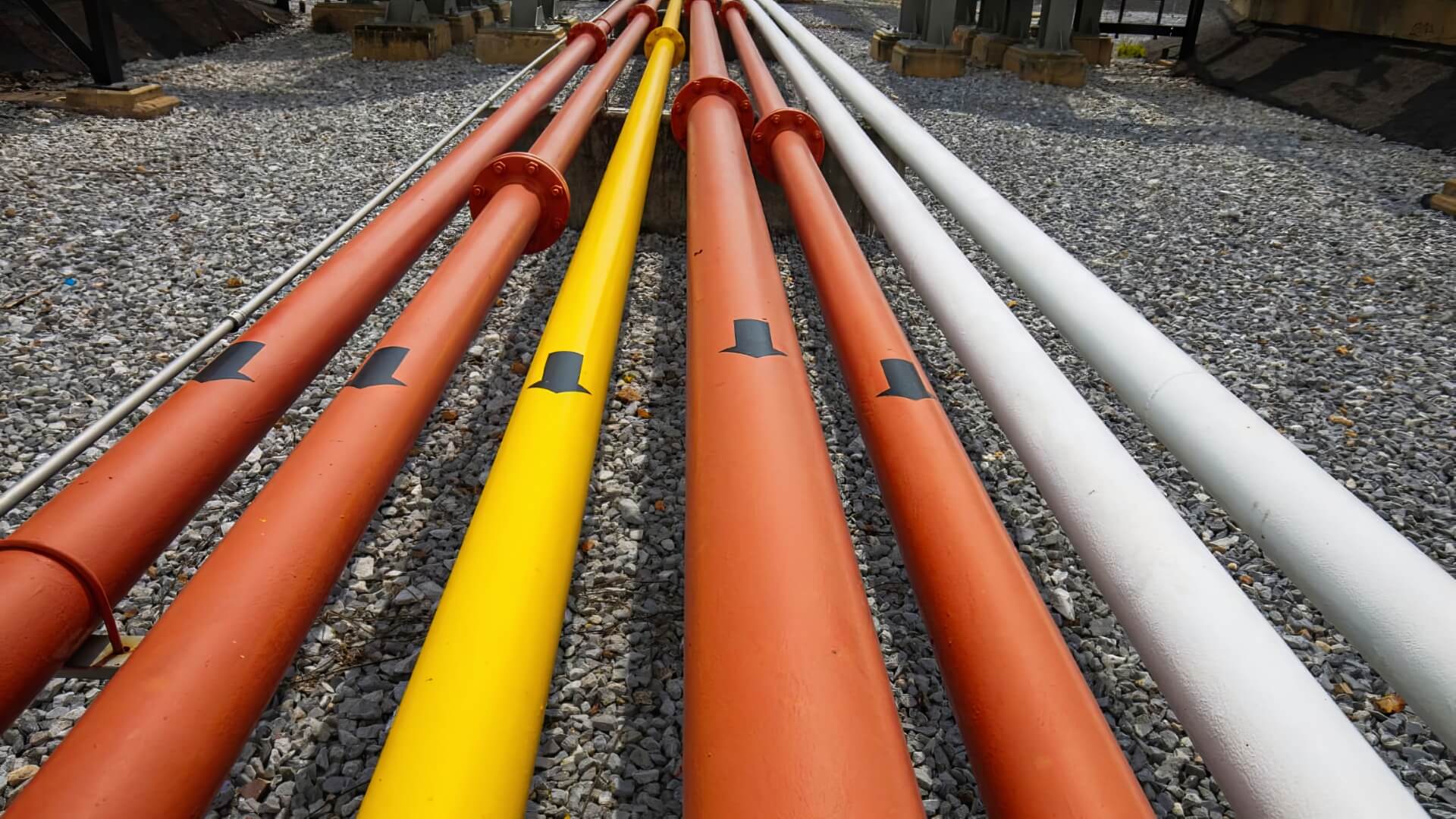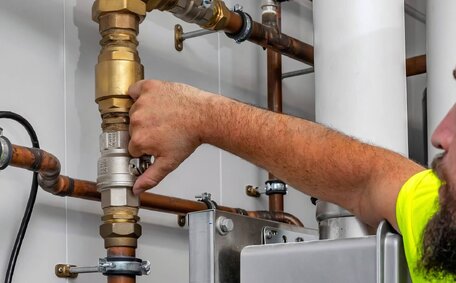What causes unpleasant smells in hot water systems? An overview
Unpleasant smells from hot water systems are relatively common and affect many households. Foul odours, specifically a rotten egg smell, often indicate an issue with your hot water heater, which may involve the presence of hydrogen sulfide gas. This situation is typically attributable to hydrogen sulfide gas that accumulates inside the water heater tank over time.
Hydrogen sulphide gas, known for causing a foul odor, can reach a high level due to sulphate-reducing bacteria thriving in the anaerobic environment inside a hot water tank. As the microbes consume minerals and organic matter, gas inside emerges as an incidental output.
The gas then collects at the top of the tank and gets released when hot water is used, giving rise to that notorious rotten egg smell your water detects.
Other possible factors for unpleasant water heaters include corrosion of the heater’s magnesium anode rod, ageing units with sediment buildup, or challenges with well water quality, all of which could be associated with a burning smell in your hot water.
Understanding and fixing the root cause is vital to permanently eliminate unpleasant odours when your hot water smells like rotten eggs.
Common culprits behind bad odors in hot water
Anode Rod Corrosion
The anode rod in your water heater is designed to corrode, protecting the rest of the tank from corrosion. As the rod corrodes over time, it can create hydrogen sulphide gas that is released into the hot water, causing a rotten egg smell.
Dip Tube Issues
The dip tube directs cold water to the bottom of the tank and ensures hot water exits from the top. If this tube cracks, hot cold water may mix unevenly, inviting sulphur bacteria to multiply and emit that rotten smell coming from your taps.
- Replace cracked or broken dip tubes in your tank.
Sediment Buildup
High mineral content in hard water and mineral deposits left to sit in an ageing tank can provide the right environment for bacteria to grow. Regularly flushing the tank helps prevent stale or stagnant water, which in turn reduces odour coming your way.
- Drain 1-2 gallons from the tank’s drain valve annually.
- Inspect the drain water - cloudiness signals sediment buildup.
Contaminants in your water supply
High levels of contaminants such as hydrogen sulphide in water or pipes can cause odours when heated, but an effective water filtration system can eliminate these smells and neutralise this issue.
- Invest in a comprehensive water treatment solution such as whole-house water filtration.
- Use hydrogen peroxide or shock chlorination to treat bacteria.
Identifying whether the smell originates from the hot water system or plumbing
These are the steps you can take to ascertain if the scent emanating from your tap amounts to more than just a hot water system or plumbing concern:
- Run the hot tap and check if the water emits a rotten egg scent; if so, the issue likely stems from your water heater.
- Boil a water sample from your tap. If the boiled water doesn’t smell foul, it suggests your water heating system may be the source of the odour.
- If boiled tap water also has an unpleasant taste, the source of the odour could be the water lines in your house prior to reaching the hot water heater.
By comparing the scents, you can determine whether you have a water heater-specific problem or a broader plumbing/water quality issue. If the issue is confined to hot water from your sink, consider replacing the anode rod or flushing the water heater to tackle bacteria accumulation. For ongoing plumbing issues with odourous warm water, consider installing filtration systems to address the root cause contaminants.
The role of anode rods and bacteria
The anode rod, found within water tanks, is crucial in reducing the likelihood of unpleasant odours from the heater.
This highlights the importance of a functioning anode rod in your hot water heater - modern models use a magnesium or aluminium galvanized anode rod to attract corrosion away from the tank’s metal. However, as the anode rod corrodes over time, it can interact with bacteria and minerals in your system, leading to a rotten egg odour.
This is the gas with the characteristic rotten egg smell. Bacteria colonies can rapidly develop this way all along the corroding anode rod surface.
Sulfate bacteria, known to reduce sulphates, can cluster at these reactive sites to feast on the magnesium, culminating in hydrogen sulphide gas production. This process can cause rotten egg odours to pervade your home: as the anode rod corrodes, bacteria create small areas of exposed reactive metal.
If the anode rod decays rapidly, pits can form, allowing bacteria to congregate and egg smell your taps to become evident when hot water comes out. Replacing the anode rod before extensive pitting occurs is key to preventing severe hydrogen sulphide gas production and rotten egg odours down the line.
Maintaining your hot water system
To dispense with the foul smell caused by bacterial growth and extend the lifespan of your water system, it’s wise to adhere to these proactive maintenance tips:
- Annually flush out the tank to rid smell effectively, by draining 1-2 gallons from the drain valve to remove accumulated sediment and minerals.
- Check and replace the anode rod as needed, ideally every 3-5 years in hard water areas.
- Set the thermostat between 49-60 degrees Celsius. Excessively high temperatures can accelerate corrosion.
- When utilizing well water, contemplate the installation of whole house filtration to excise impurities - a preventative measure against what can happen without such intervention.
- Shock chlorinate tanks that still emanate a rotten egg smell after anode replacement to ensure water your gas water heater remains in optimal condition.
- Safeguard all drainage by sealing correctly to preclude sewer gas odors from infiltrating via conduits akin to ensuring sound air conditioning systems.
Taking a proactive approach with plumbing service focused on hot water heater maintenance prevents more serious problems down the line. Contact a plumber for expert heater repair if a water heater smell persists after trying these steps.
Replacing deteriorated anode rods
There are a few key signs that your hot water heater’s anode rod is deteriorated and in need of replacement:
- A pronounced rotten egg or sulphur water smell emanating from your hot water
- Discoloured or rusty water emerging when run your hot water could suggest an underlying issue in your system
- Reduced efficiency and the need water heater capacity
- Significant sediment buildup inside the tank
Replacing a worn anode rod is crucial to prevent tank corrosion and odour issues. When it comes to the new replacement rod, you typically have three material options:
- Magnesium: Less expensive but corrodes faster. Best for areas with soft water.
- Aluminium: Longer-lasting corrosion protection. Good for hard water areas.
- Zinc: Sacrificial element provides cathodic protection. Most universal option.
The choice comes down to water type and how frequently you want to replace the rod. A seasoned plumber can help evaluate your unique situation and endorse the optimal replacement anode rod to maximise corrosion prevention and banish foul hot water smells.
Periodically flushing sediment
Sediment accumulation inside water heater tanks stands as one of the primary culprits for that distinct water heater odour, frequently likened to rotten eggs. Using a water softener can control mineral deposits, scale, and debris that settle at the bottom of the tank which can affect hot water quality. This material creates an environment conducive to sulphur bacteria growth and hydrogen sulphide gas production.
To remove sediment accumulation and halt bacteria proliferation, it’s crucial to understand how all your periodical flushes of the hot water heater contribute to its cleanliness. This maintenance procedure, aimed at addressing water heater smells, should be performed annually:
- Turn off power to the water heater and turn off gas or cold water intake valve.
- Attach garden hose to up tank’s drain valve and route hose outdoors.
- Open drain valve and allow water only to flow, then shut off once it runs clear without sediments, draining 1-2 gallons in the process.
- Close drain valve, refill tank, then restore power & water supply.
Draining a gallon or two through the drain valve removes sediment from the bottom, improving hot water performance. Over time, this prevents scale buildup and associated rotten egg odours resulting from bacteria collected in the sediment.
Treating bacteria buildup
Should the rotten egg smell linger even after a thorough flush, you may have to replace anode and consider the stubborn sulphur bacteria thriving inside the tank. To exterminate odour-causing bacteria and safeguard the gas your water heater uses:
- Raise the temperature: Bumping up the thermostat to 140°F helps kill bacteria, contributing to a smell hot water free of bacterial presence - but ensure not to exceed 150°F which can hasten tank corrosion.
- Shock chlorination: Adding 3 cups of household bleach and running hot water for an hour shocks the system to destroy bacteria. Flush after treatment.
- Hydrogen peroxide: Using a 35% food-grade hydrogen peroxide solution to fill 1/10th of the tank capacity can oxidise bacteria. Let it sit for a few hours to overnight before flushing.
This is precisely why your hot water system requires a coordinated assault of treatments to ensure your glass water is pristine and free from notorious sulphur bacteria. Avoid drinking water or bathing until the system is thoroughly flushed after treatment to remove chemical residue. Maintain your water heater properly afterwards to discourage future bacteria overgrowth.
Recognizing when professional help is needed
It’s crucial to call in a professional Moorebank plumber when DIY troubleshooting fails to solve smelly hot water issues. Contact Moorebank Plumbing on 1300 349 338 or at [email protected] if you experience any of the following:
- Rotten egg odours persist after anode rod replacement and tank flushing
- Hot water smells bad even after hot water heater sanitisation/shock chlorination
- Sediment flush reveals extensive corrosion or leaks inside the tank
- Tap water smells like rotten eggs indicating a problem with pipes or plumbing
- There are signs of a cracked dip tube mixing hot and cold water unevenly
Our licenced plumbers have the expertise to provide top-tier plumbing services, examining your anode rod, pinpointing the exact cause of unpleasant hot water smells using specialised equipment. We can treat stubborn sulphur bacteria, replace worn parts, and ensure your entire plumbing system is functioning optimally.
Signs it’s time to replace your water heater
There are a few telltale signs indicating when an ageing hot water heater requires replacing:
- Persistent rotten egg or sulphur smells despite troubleshooting efforts like anode rod replacement and flushing
- Cloudy, discoloured water or sediment in the hot water indicating corrosion and tank failure
- Significant loss of water heating efficiency and capacity over time
- Leaking water from the tank’s exterior meaning internal failure
- Odd noises like banging or rumbling when the unit operates signalling issues
- Evidence of rust accumulation or breeches in the tank’s core structure
- The apparatus has aged beyond 10-15 years, signifying it’s time new for contemplation of its functional lifespan culmination
If your hot water heater shows any of these signs, it indicates the internal tank integrity is compromised, which risks your clean water supply. Replacement is the only option to restore a supply of clean, efficiently heated water.
Our licenced Moorebank plumbers can inspect your current unit, confirm if replacement is necessary, and recommend the most suitable new water heater option for your home’s needs.






